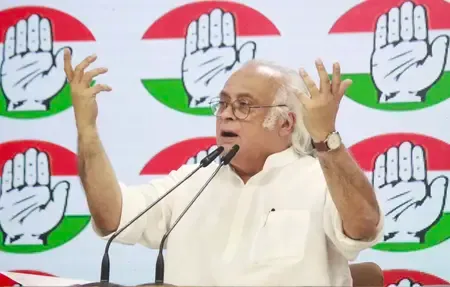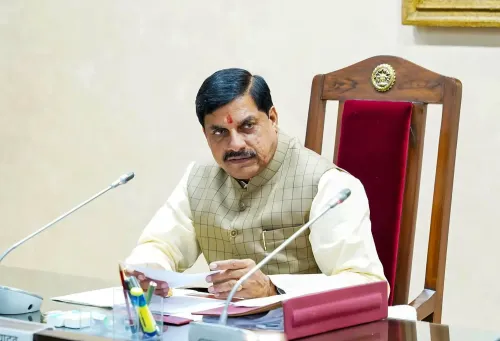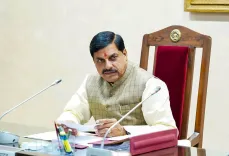Has the Congress Party Finally Awakened to the Need for Radical GST Reforms?

Synopsis
Key Takeaways
- Congress welcomes proposed GST reforms.
- Criticism of government for seven years of inaction.
- Call for GST 2.0 to embody a Good and Simple Tax.
- Need for urgent discussions on GST reforms.
- Addressing MSME concerns is crucial for economic growth.
New Delhi, Aug 16 (NationPress) The Congress party expressed its support for the proposed reforms to the Goods and Services (GST) tax on Saturday. However, they criticized the Central government for delaying action on this vital issue for an extended period of seven years.
During his Independence Day address, Prime Minister Narendra Modi hinted at delivering a significant "Diwali gift" to the nation, announcing that the next phase of GST reforms would be implemented before the festival of lights.
In response to PM Modi's declaration, Jairam Ramesh noted that the Congress has consistently advocated for "comprehensive reforms" in the GST, while the government has hesitated to address the matter. He emphasized that reforming the GST is a central promise included in their 2024 electoral manifesto.
On social media platform X, Jairam Ramesh stated, "Over the past seven years, the essence of GST has been compromised by the increased number of tax rates and numerous exemptions. The current structure appears to have enabled tax evasion."
He further remarked, "It seems that the Prime Minister has finally realized that economic growth cannot accelerate without this transformation, which is essential to boost private consumption and investment."
Additionally, he called for the immediate release of an official discussion paper on GST 2.0 to foster an informed and broader dialogue on this crucial national concern.
"GST 2.0 must genuinely embody a Good and Simple Tax (GST) in both principle and practice, rather than the Growth Suppressing Tax (GST) it has become," he asserted.
Ramesh also advocated for a significant reduction in the number of tax rates, emphasizing that simplification is vital, but it must be approached in a way that minimizes revenue uncertainty for states while eliminating common classification disputes.
"The GST compensation cess is set to expire on March 31, 2006. An extension is necessary to alleviate any revenue uncertainty arising from the rationalization of the rate structure," he stated.
He proposed that the widespread concerns of MSMEs, which are key employment creators in the economy, need to be addressed effectively. This would not only involve major procedural changes but also necessitate raising the thresholds applicable to interstate supplies. Moreover, sector-specific challenges, especially in textiles, tourism, exports, handicrafts, and agricultural inputs, must be resolved.









